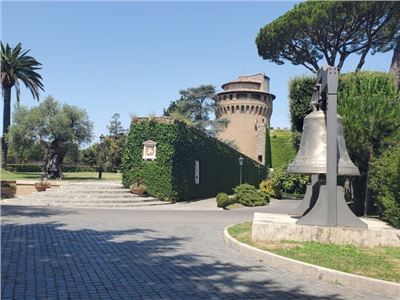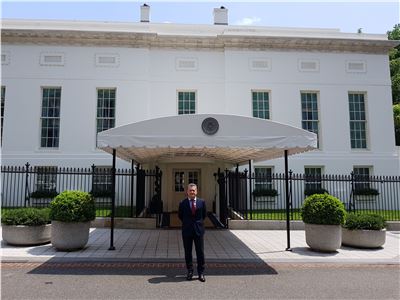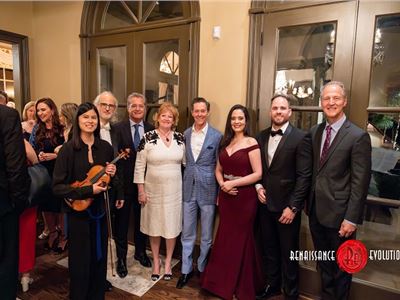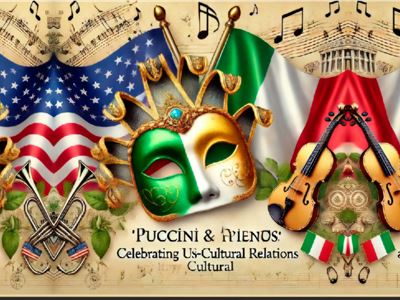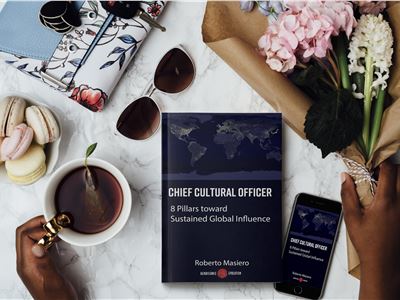2:00 am, October 10, 2014 During the darkest days of World War II, when much of Europe was under Nazi domination, Jews on the continent were imperiled: rounded up and murdered in concentration camps, under siege elsewhere, or on the run.
In the Italian village of Anghiari, another Catholic feast day approached. It was 1943 and an anxious moment for 7-year-old Adina Sella and her family, German-Jewish refugees living under the remarkable protection of Italian locals. Numerous people had taken significant risks for the family, creating cover stories, watching out for them and avoiding opportunities to report them — either to German authorities or their Italian Fascist partners.
And so Sella, born Peggy Schaufeld in Hamburg, Germany, became Lucia Scapelli of Anghiari, and her family became, under duress, students of Italian culture.
"The priest took it upon himself on the eve of every Italian holiday or day of remembrance to tell us how to behave," Sella, now a 78-year-old Chicago psychologist, told us. "They used to come in the evening, 'Signore, signora,tomorrow is the Feast of St. Anthony, and on this feast you tie your kerchief this way, and give a donation there, hold your rosary like this … It was very, very important to blend in."
The history of World War II consists of many intertwined events — the tragic, the heroic and the overlooked, including the story of the Jews in Italy, most of whom escaped the Holocaust because many Italians shielded them from Hitler's genocidal vision.
While Italy under Benito Mussolini instituted harsh discrimination laws in 1938, Italian authorities opposed or subverted the Nazis' extermination plans while many Italians actively protected Jewish residents and refugees. Joseph Goebbels, the Nazi propaganda minister, complained in 1942 of the "lax" Italian attitude toward Jews. After the German occupation of Italy in 1943, several thousand Jews were sent to Auschwitz and other camps to die.
Still, according to various estimates, about 80 percent of the roughly 45,000 Jews in Italy survived the war because Italy did not abandon them. Even when the Italians interned Jewish foreigners, families lived together under bearable conditions, the United States Holocaust Memorial Museum said.
"All my life, I've wondered, what is it about cultures?" Chicago attorney Edna Selan Epstein, who was born in Yugoslavia and survived with her family as refugees in Italy under false identities, told us. "Why was a culture so humane and protective across the board as the Italians were, where cultures like the Germans committed the sadistic horrors they committed?"
The question may not be answerable, but still it can be celebrated: On Monday, Chicago's 62nd annual Columbus Day Parade, operated by the Civic Committee of Italian Americans, will honor the victims, survivors and Italian heroes of the Holocaust.
In Israel, Yad Vashem, the Holocaust museum and memorial, lists more than 600 Italians as Righteous Among the Nations, those who risked their lives to save Jews. Among them are Giocondo and Annina Marconi, the villagers in Anghiari who took in Adina Sella's family. Her brother nominated the Marconis.
But many others also helped the family. When they arrived in Anghiari, they were desperate. They had been kept safe in their previous hiding place, the town of Arezzo, where Sella and her brother even went to a convent school. But then came a warning that the Germans were coming and the family could no longer be protected. They fled by train to the last stop on the line: Anghiari.
"Two policemen came — we were with another family — they grabbed the men and were gone," she recalled. "One hour, two hours, three hours … the women were besides themselves. We had no money. We didn't know what to do, where to go. Three hours later they came back, and they had false identities for us and ration books."
Sella's family eventually made it from Italy to Palestine (pre-independence Israel), and later she came to America with her husband.
Epstein's family survived and was in Rome for the American liberation in 1944. They arrived in the U.S. on a troop ship with wounded GIs and German POWs. They were interned in Oswego, N.Y., until after the war.
Both women spoke to us in anticipation of the Columbus Day parade in order to honor the Italians whose selfless acts of courage and decency deserve remembrance. We honor them, too.
Elissa Ruffino
Director of Communications
The National Italian American Foundation (NIAF)
1860 19th Street NW
Washington, DC 20009
Direct: 202/939-3106
Main: 202/387-0600
Fax: 202/387-0833
Cell: 703/727-8479
E-mail: elissa@niaf.org
On the web at www.niaf.org
Join the excitement during NIAF’s 39th Anniversary Awards Gala Weekend, October 24-25, 2014, in the nation’s capital. Reserve rooms through NIAF’s special room block at the Washington Hilton and purchase tickets today at www.niaf.org/gala
News credit: Chicago Tribune, Editorials, October 10, 2014,
Image credit: USHMM,ORG
- Tags:
- Categories:






